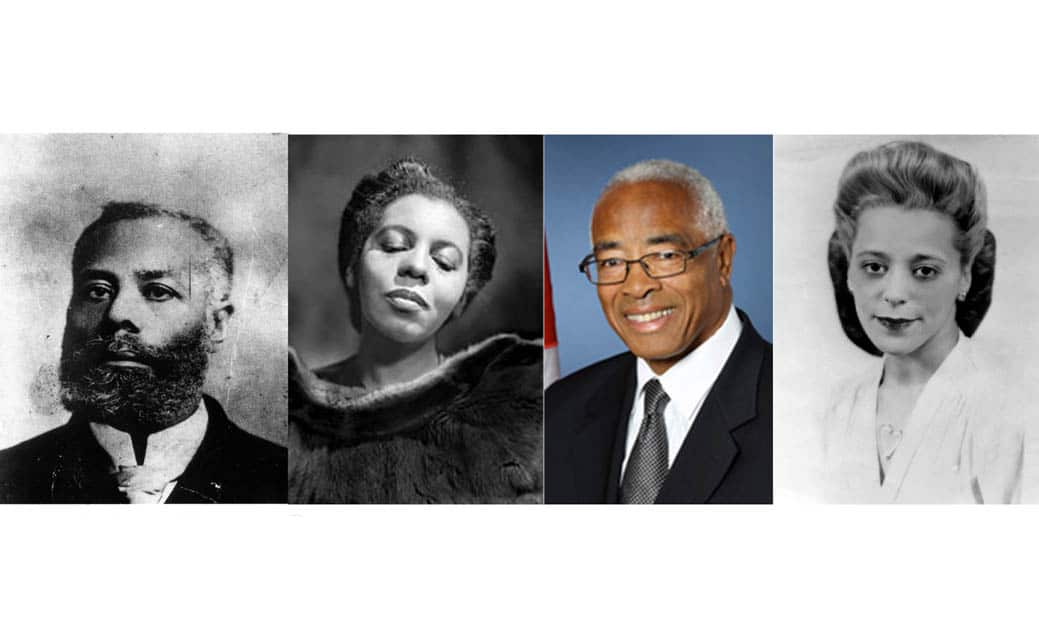Four Black Canadian figures that have shaped Canadian society
It is critical to recognize and learn about Black achievement and innovation in Canada.
As a Canadian society, it is critical for us to recognize, remember, and celebrate Black Canadian figures and their accomplishments, which have contributed to Canadian society. This is because it celebrates diversity, unity, and creates an opportunity for us to understand the privileges we now have as well as encourage young Black people to thrive. Here are four significant Black individuals in Canadian history that are the epitome of Black achievement.
Elijah McCoy was born in 1844 in Canada West and was considered one of the most significant Black figures of his time. By 1837, his parents had escaped enslavement and arrived in Upper Canada. In his early life, Elijah worked as a fireman in Michigan. Steam-powered engines presented a challenge for many at the time as they experienced frequent mechanical troubles because the industrial lubricants wore out. Elijah devised a mechanism to ensure the smooth operation of steam-powered engines. The device was known as the “oil-drip cup” and would regulate the amount of lubricant added to the engine. His invention spread rapidly and in the late nineteenth century, the hydraulic lubricator for locomotive engines, as well as his designs for ship engines, had a considerable impact on the transportation industry. His most elaborate invention, however, was the graphite lubricator, which he patented when he was 72 years old.
Portia White was born in Nova Scotia in 1911, and her deep contralto voice made her an international sensation in the 1940s. Her father was a Baptist minister and thus Portia joined the choir at the age of six. At eight years old, Portia was given the opportunity to sing on Canadian radio broadcasts. She stopped performing in 1952 after travelling throughout North America took an incredible toll on her body. She has received many honours including a Portia White stamp from Canada Post and was named a Person of Historic Significance on a plaque in the Nova Scotian town of Truro, making her the first Canadian woman of African heritage to do so. Portia White died in 1968 after losing her long fight against cancer.
Donald Oliver, a businessman, lawyer, and senator (1990-2013), was born in 1938 in Nova Scotia. His Baptist parents fostered in him the importance of community and no doubt this lesson led him to a career in politics, particularly to fight for racial equity in Canada. In 1990, Donald became the first Black Canadian man to be appointed to the Senate of Canada. He continues to have a strong impact on our everyday lives as he introduced an amendment to the section of Criminal Code in the private Member’s bill dealing with stalking and online harassment.
Viola Desmond was a successful independent businesswoman as a beautician who created the Desmond School of Beauty Culture to teach and employ young Black women and grow her business. Viola Desmond was arrested in 1946 and forced to spend the night in jail because she refused to leave the Roseland Theatre in Nova Scotia’s “White’s Only” section. Despite efforts from the Black community in Nova Scotia, they were unable to clear her of accusations, and she spent the rest of her life in jail until she received a free pardon from Nova Scotia. Viola Desmond was named a National Historic Person by the Canadian Government in 2018 and is featured on the Canadian $10 bill.
Recognizing Black Canadians during Black History Month allows us to reflect on the accomplishments that Black people have had and continue to have on our present society and lived experience. It is also a way to showcase and learn about Black culture and innovation, which have cultivated Canadian history in many ways.

